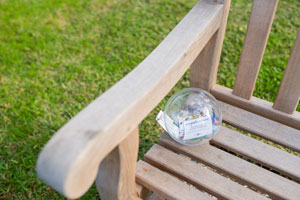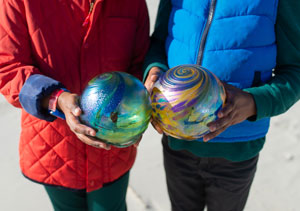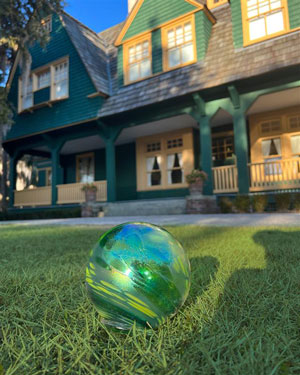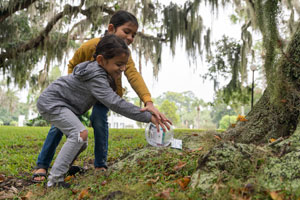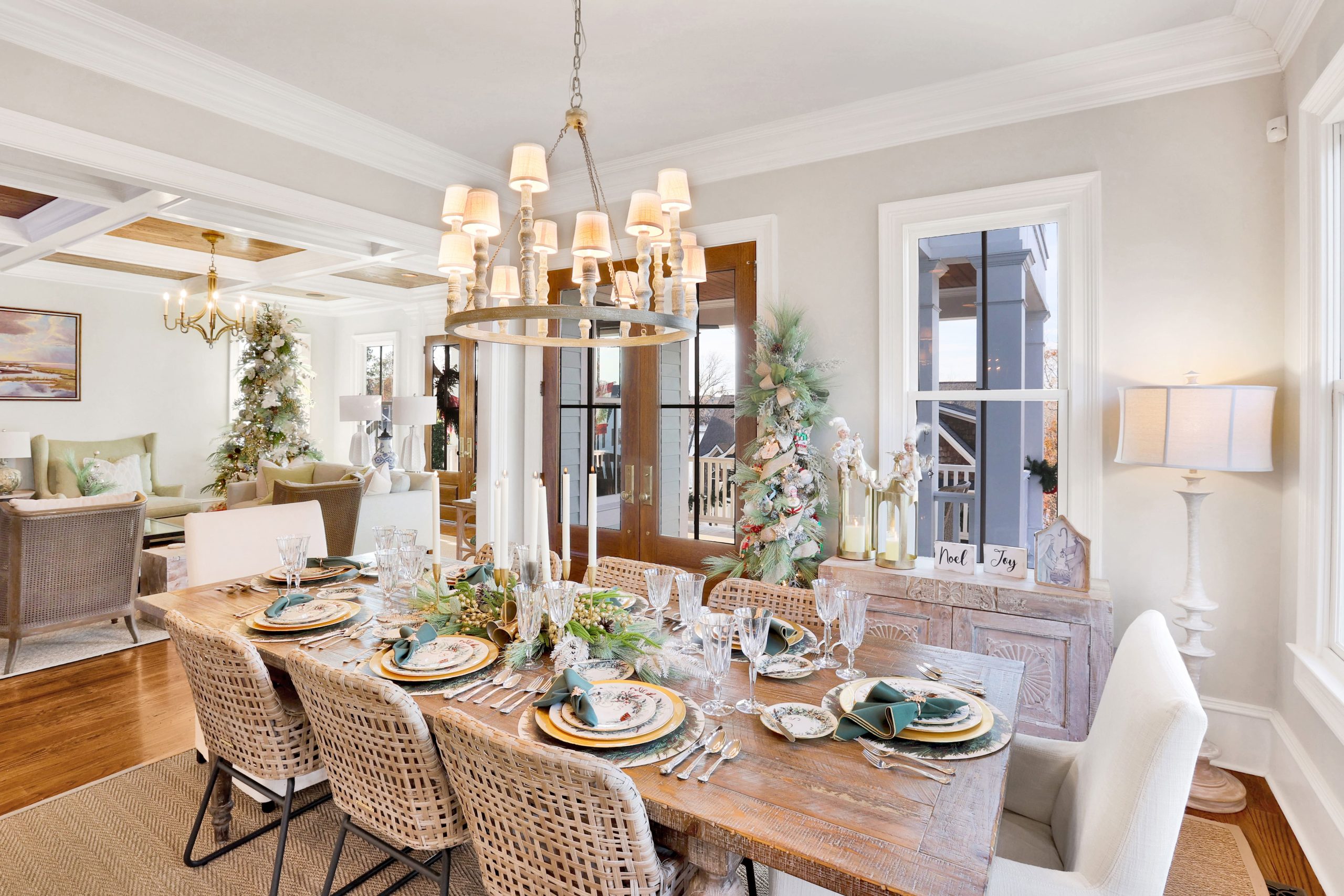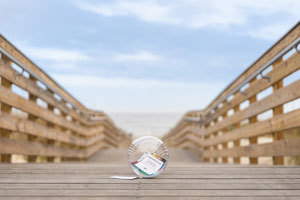
Search for treasures in plain sight during this inventive Jekyll Island tradition.
A day at the beach can bring out anyone’s inner child, and Jekyll Island has found a way to captivate the young at heart with Island Treasures.
In this hide-and-seek-style activity that runs all day every day during January and February, people can search for plastic globes that volunteers called Beach Buddies “hide” around the island. Lucky island combers who find one can redeem it for a real glass-blown globe.
“It’s an annual tradition that people really enjoy,” says Kathryn Hearn, the Jekyll Island Authority marketing communications manager. “It’s a good way for them to get out and explore parts of Jekyll Island that they have never seen before. Most people go to the beach or the Historic District when they visit, but Island Treasures creates excitement around the entire island. People really get into the treasure hunt aspect of it.”
The event is a great way to create memories, and since the globes also are available for purchase to those who don’t find one, no one has to go home empty-handed. They sell for $85 at the Jekyll Island Guest Information Center or online.
While Island Treasures started more than 22 years ago, the colorful, coveted orbs date back to the early 1900s when East Coast fishermen used hollow glass balls, or floats, on their nets as markers.
Occasionally, the floats would break loose and wash ashore for beachcombers to find and keep. In the 1950s, collecting these rare, highly sought-after glass floats became a hobby.
Jekyll Island selects two or three artisans from across the country to create the one-of-a-kind glass-blown objects every year. This year Seattle-based Mark Elllinger and Loretta Eby of Georgia made the globes.
Each Island Treasure, which is about half the size of a soccer ball, has a distinct abstract design with varying colorations.
Beach Buddies place them around the island any time of the day or night. They typically hide about 200 plastic globes during the two months, putting out two or three on weekdays and about five on weekends.
The volunteers receive special training before the annual event, and their identity is kept secret. Globe seekers are asked to refrain from following Beach Buddies – or anyone they think is a Beach Buddy – for safety reasons and to ensure that the hunt is fair for everyone.
“The globes are accessible to all. They’re hidden in plain sight on a bench or by a bike rack or on a nature trail,” says Hearn.
The best places to look for the plastic globes are in common areas such as Great Dunes Beach Park, Driftwood Beach, St. Andrews Beach Park, Horton House, the Historic District and the Beach Village.
While the 20-acre Great Dunes Beach Park, which features multiple recreation areas, is Jekyll Island’s most popular family beach, Driftwood Beach is made up of sun-bleached trees worn down by storms and erosion over time.
Located on the southern-most tip of the island, St. Andrews Beach Park is a great place to see wildlife such as migratory birds and pods of dolphins.
St. Andrews also is home to the Wanderer Memory Trail, which tells the story of one of America’s last known slave ships, the Wanderer.
Listed on the National Register of Historic Places, the 1743 Horton House is one of the oldest tabby buildings in Georgia.
Although the Historic District offers a selection of gift shops and Jekyll Island collectibles, the Beach Village is the epicenter of the island with its shops, restaurants and hotels.
When searching for globes, however, it’s just as important to know where not to look. Island Treasures will never be placed in beach dunes, marsh areas, residential properties or golf courses. In fact, entering these areas can be illegal and unsafe.
Some treasure hunters develop strategies about when and where to search for the plastic globes, but Island Treasures is really about being at the right place at the right time.
Each plastic globe has a numbered tag inside, and people who find one can redeem it for the corresponding glass-blown globe at the Guest Information Center. The center is open 9 a.m. until 5 p.m. Monday through Saturday and 10 a.m. until 5 p.m. Sunday.
People must complete a claim form and provide a photo ID to receive their prize. Only one Island Treasure can be claimed per household per year so as many people as possible can enjoy the hunt.
Island Treasures is a great reason to plan a wintertime family vacation or girls’ weekend.
“The off-season and shoulder-season are wonderful times to visit Jekyll Island,” Hearn says. “There are not as many people on the island, and everything moves at a slower pace. There’s more of a community feel in the off-season.”
Shops and restaurants remain open during non-peak seasons, when average temperatures are in the mid-60s and lodging rates are reduced.
As Jekyll Island is about a three- to four-hour drive from Columbia County, local adventure seekers might want to turn the outing into a multi-day trip. Accommodations range from luxury resorts and boutique hotels to chain-hotel lodging and Jekyll Island Campground.
An overnight stay also provides more time to explore the island. After all, whether visitors find a globe or not, the real treasure is discovering all that Jekyll Island has to offer.
What: Island Treasures
When: January 1 – February 29; all day
Where: Jekyll Island, Georgia
How Much: $10 island parking; event is free
More Info: jekyllisland.com
By Morgan Davis

